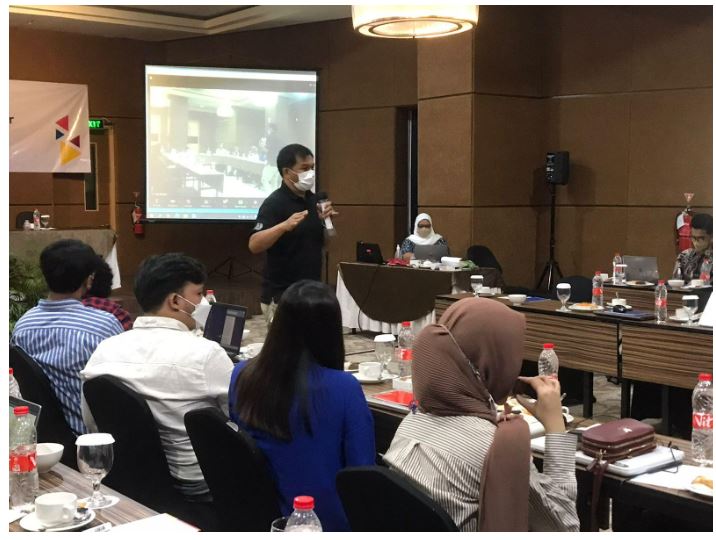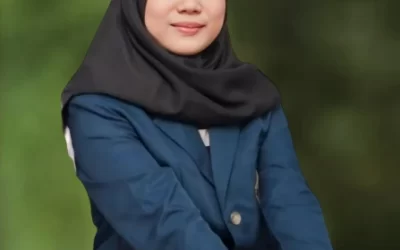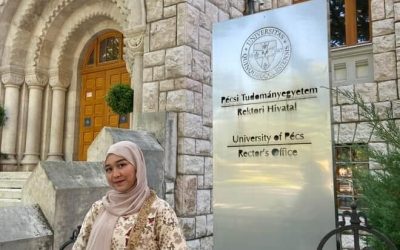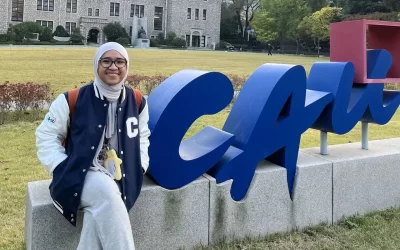Listening to the experience of forced labor experienced by former crew members (ABK) of foreign ships directly became an inspiring experience for students of Communication Science journalism (Ilkom). Not only that, in this program, they also have the opportunity to produce real output in the form of news articles about forced labor for Indonesian crew members published in various information channels including mainstream media.
Collaborating with International Labor Organization (ILO), The Department of Communication at Diponegoro University (Undip) sent five students concentrating on Media Journalism and Creative Content to take part in a training themed “Training on Reporting Forced Labor for Journalism Students” from Monday (30/5) to Tuesday (31/5) at Hotel GranDhika Semarang.
National Program Coordinator ILO Jakarta 8.7 Accelerator Lab, Muhamad Nour, said that the ILO program invited journalism study programs in Indonesia which had previously been implemented by the ILO in various countries, one of which was in Singapore. A workshop that invites professional journalists from mongabay, Basten Gokkon, and Charles Autheman from the ILO was conducted to increase public awareness and media coverage of the abolition of forced labor in the fisheries sector in Indonesia.

Accompanied by Dr. Nurul Hasfi as a journalistic lecturer at the Department of Communication Sciences, five students representing the Journalism Concentration Class of the Communication Studies Study Program, namely Almira Khairunnisa Suhendra, Annisa Zulfalia Az Zahra, Dinda Khansa Berlian, Fahrina Alya Purnomo, and Uli Zahro Irsyadiah. The participants were selected from the Online Journalism Course (MK) class and almost all of them had experience in campus press activities.
Apart from Undip, the ILO also invited two other universities, namely Bandung Islamic University (Unisba) and Brawijaya University (UB). Just like Undip, the two universities also sent five student representatives each.
According to Nurul Hasfi, this event is very useful for students of Journalism concentration in the Communication Studies Study Program, who have been limited to interacting directly with professional journalists in class. In addition, they also gain experience covering a fairly serious issue that has rarely been discussed in class, namely the human trafficking of Indonesian crew members who work on foreign ships.
During the two days of training, the activities held included the presentation of material entitled “Fisheries Policy and Legal Framework in Indonesia, Intersection Between Fisheries and Labor”, which was delivered by Basten Gokkon. Basten himself is a professional journalist who has experience covering the forced labor of Indonesian crew members and has interviewed dozens of ship crew members. Basten emphasized that this issue is a complex issue involving certain actors, ranging from the state, and agencies, to foreign ship companies. No doubt this problem is difficult to solve. News that can describe the experience of the crew of the ship is one way to understand this issue from the side of the crew of the ship.
After the presentation of the material was over, students had the opportunity to practice how to interview former crew members who are currently being handled by Indonesian Migrant Workers Union(SBMI). In addition to experiencing improper treatment while working on foreign ships, some of them are also not fully paid after returning to Indonesia.
The interview session with the crew members was the most interesting because students could sharpen their intuition to find news angles, guided by mentors from the ILO, Muhamad Nour, and Gita Lingga.

On the second day, the students went out to the field to conduct interviews with other sources needed to complete the data they had by visiting three locations, namely the new port of Tegalsari, the Tegal Manpower Office, and the manning agency in Pemalang. Here the participants can directly confirm the experiences of other sources to deepen the news.
Annisa, as one of the participants, revealed that she had an experience that she could not get in lectures that had been covering light issues so far. Apart from gaining knowledge related to journalism, he now knows more about forced labor in the fisheries sector and this workshop was an unforgettable experience.
“The most important thing is that my friends and I can meet former crew members and hear their stories and how they struggle against forced labor,” Annisa added.
Authors: Almira Khairunnisa Suhendra, Annisa Zulfalia Az Zahra, Dinda Khansa Berlian, Fahrina Alya Purnomo, and Uli Zahro Irsyadiah.
Editor: Nurul Hasfi





0 Comments